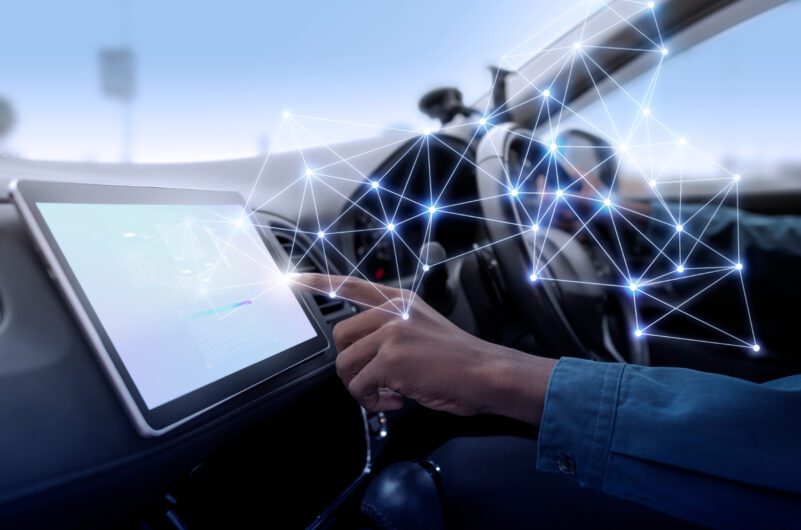Have you ever wondered how your favourite car brand resonates with people from Tokyo to Toronto and everywhere? Please take a seat because we’re diving deep into the world where cars and languages intersect!
A Journey Across Continents
Oh, sweet cars are not just about getting from point A to B. They’re a global affair, and every stage, from the initial sketches and engineering marvels to the vrooming beauties on the road, is a dance of languages and cultures. This is where automotive translation services step into the spotlight, ensuring that innovation knows no language barriers.
A Niche Like No Other
Translating for the automotive industry isn’t a walk in the park. It’s a world that marries technical prowess with linguistic artistry. To spin the magic, you need an in-depth understanding of the automotive world, honed over years of immersing in the technical and creative waves of the industry.
The Global Pulse of the Auto World
Cars and globalization – they’re like bread and butter. With every rev of the engine, echoes of innovation spread across borders, making cars a universal language. But here’s the deal – to keep this conversation flowing, translation is the unsung hero, ensuring that a car in Japan speaks the same language of innovation as it does in Brazil.
Driving Through the Translation Lane
From design blueprints to user manuals and marketing charisma, every word is meticulously translated to resonate with the local heart while echoing the global spirit. It’s about ensuring that safety guidelines in Germany have the same gravitas in English and the marketing allure in French sparkles with equal charm in Arabic.
The Road Ahead
In a world where your car is not just a vehicle but an extension of your identity, automotive translation ensures that the global charm of cars is sung in local melodies. It’s more than translation; it’s about weaving the global tapestry of automotive innovation with threads of local languages and cultures.
Why Automotive Industry Needs Translation?
The auto industry relies on automotive translation services throughout all stages ─ from design, engineering, manufacturing, assembling, production, to sales and marketing. These services cover a broad range of concepts that are essential for the industry.
Significantly, many aspects distinguish automotive translation services. However, let’s, for now, shed light upon just one of them. To be a specialized translator in this sphere, you need to fully understand the technical details and processes through corresponding professional training and years of experience with texts from the automotive sector. Special.
A car is like a mother-in-law – if you let it, it will rule your life, as the proverb goes!
Yet, cars, and the automotive sector, have been the most booming industry worldwide for many years. Is this breaking news?
Big No. The auto industry has been a leader in setting many global standards throughout history. The reasons are obvious. The automotive industry encompasses some of the most established companies in the world, and, more importantly, it is a global industry that affects the lives of people in almost every country.
Global vehicle production has been increasingly growing since 2009, and the boom is anticipated to continue thanks to high growth rates in South America, China and the Asia Pacific. The global auto industry sold 78.9 million automobiles in 2018 and 75 million in 2019 and is expected to sell 59.5 million in 2020.
Is Automotive a Globalized Sector?
The auto sector is a typical global industry. Research and development, manufacturing, assembling, consumption and servicing for the same car take place in different countries across the globe. People of different nationalities, different colors, different languages and different cultures work on producing cars and use them all over the world.
That’s why the documents related to a vehicle should be translated into multiple languages so systematically, accurately and consistently that the information may cater to the needs of various target audiences.
So, are automotive translation services becoming inevitable? But what are these services in the first place?
Various Types of Automotive Translation Services
Automotive translation covers a wide range of roles that are vital for both production and sales processes, but we can roughly divide it into five categories.
1- Design: Automotive translation services help the various design teams communicate, as they often consist of experts who speak different languages. Besides, CAD designs and many other documents should be translated into numerous languages.
2- Manufacturing: The manufacturing stage needs the precise translation of the manufacturing guidelines, processes, and other related content, as cars are often designed in one country and made in other countries. The translation must be done within specific deadlines and with high quality.
3- Safety Documentation: This field requires translating a lot of safety documentation to safeguard various workers across design and production processes.
4- User Manuals: Auto businesses must follow the instructions of governments and regulators around the world and provide all instructions and safety guidelines in various languages to keep the drivers and the public safe.
5- Marketing Content: Like almost all industries, marketing materials should be translated into the languages the company’s multiple audiences speak to boost revenues in every target market. To grow and thrive globally, you need automotive localization services that consider new markets’ cultures.
Automotive translation services typically include a broad variety of automotive documents that include:
• User guides
• Warranty documents
• Motor repair manuals
• Parts reference manuals
• Owner’s manuals
• Engine repair manuals
• Transmission user guides
• Automotive component repair guides
• Engine repair guides
• Exhaust-system installation guides
• Battery assembly instructions
• Brake system documents
• Cooling system specs
Why Is It Important to Translate Automotive Content?
Auto companies, like all important industries, need to communicate with their target audiences to attract customers, improve sales and raise revenues. But these companies have audiences all over the world!
When you offer translated automotive materials to your audience, you ensure that your image is accurately reflected in the content for customers who speak different languages around the world. Remember, your audience in the auto sector is the entire world!
Hence, for car manufacturers to operate on a global scale, all content ─ marketing content, advertising materials, computer systems, customer service, financial contacts, and legal documents ─ should be translated effectively and clearly.
Wrapping It Up
As we steer through the global lanes of the automotive world, translation is not just a service; it’s the bridge connecting automotive marvels with local hearts. It’s the whisper of innovation echoing with equal charm across the bustling streets of New York, the serene lanes of Kyoto, and beyond.
Conclusion: In today’s globalized automotive industry, accurate and effective translation services are essential for successful international expansion, compliance with regulations, and ensuring smooth communication across the supply chain. Automotive translation facilitates seamless interactions, boosts customer satisfaction, and fosters business growth. By partnering with professional translation providers with expertise in the automotive domain, businesses can overcome language barriers and thrive in the competitive global automotive market.




